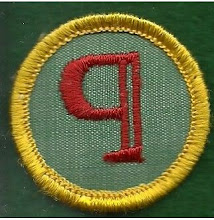Ah, but the quote I seek was in a book about probability and randomness: yes, I read math books. I've been a math teacher, I am fascinated by numbers. The Drunkard's Walk: How Randomness Rules our Lives by Leonard Mlodinow (pages 9 and 10)
"Suppose four publishers have rejected... your manuscript. [do] the rejections by all those publishing experts mean your manuscript is no good... could it be that publishing success is so unpredictable... that numerous publishers could miss the point and send... letters that say thanks but no thanks?"
John Kennedy Toole's Confederacy of Dunces was deemed not much by editor Robert Gottleib (!!!) at Simon & Schuster; an opinion also held by Hodding Carter. Toole committed suicide in 1969, his mother badgered publishers for years, the book was finally published in 1980 and won the Pulitzer Prize in 1981.
The Dairy of a Young Girl by Anne Frank was rejected by multiple publishers.
Sylvia Plath: "...isn't enough talent for us to take notice."
George Orwell, Animal House: "...impossible to sell animal stories in the U.S."
Tony Hillerman was told by his agent to get rid of the "Indian stuff" in his novels.
Theodore Geisel (Dr. Suess) had his first children's book rejected by twenty-seven publishers.
John Grisham's manuscript A Time to Kill was rejected by twenty-six publishers. His second manuscript, The Firm, was only picked up only after a bootleg copy was optioned for $600,000 for the movie rights.
And famously, JK Rowling's first Harry Potter Manuscript was rejected by nine publishers.
The point is -- PERSISTENCE. Successful people in every field, not just writers, are those who don't give up. Keep shopping that manuscript around: if you keep getting the same comments from publishers, take a hard cold look at your writing; revise if needed, but be persistent.


